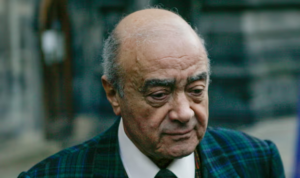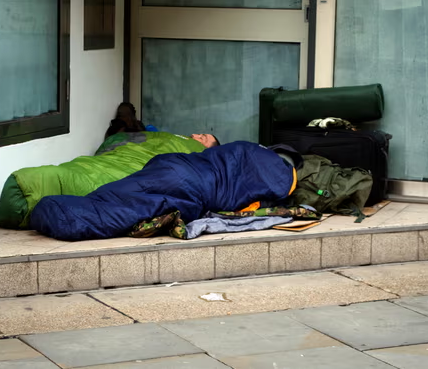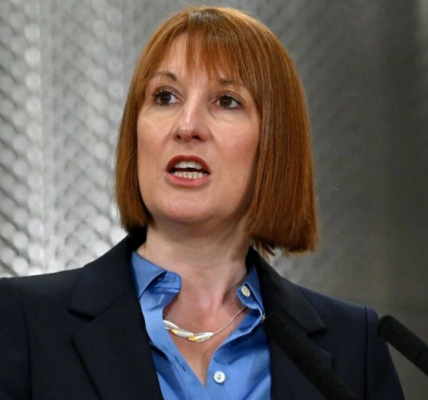BBC says 37 of the women worked at Harrods, and earliest accusation of abuse dates back to 1977

Stories of predatory behaviour around young women had been circulating since the mid-1990s. Photograph: Murdo Macleod/The Guardian
A further 65 women have come forward to the BBC with allegations of abuse by Mohamed Al Fayed going as far back as 1977.
Since the broadcast of the BBC documentary Al Fayed: Predator at Harrods, in which five women claimed to have been raped by the billionaire, more women have come forward with claims of sexual harassment, sexual assault and rape, the BBC reported.
The broadcaster said 37 of the 65 new women to have come forward said they had worked at Harrods. One woman said she was assaulted by the former Harrods and Fulham FC owner – who died last year aged 94 – in Dubai in 1977, the earliest accusation of abuse so far.
In a statement to the BBC, Harrods said: “Since the airing of the documentary, so far there are 200-plus individuals who are now in the Harrods process to settle claims directly with the business.”
Barristers representing alleged victims of Fayed said last week that the group numbered more than 70. The group Justice for Harrods Survivors said the number of women “feeling safe to come forward” was “increasing on a daily basis”.
A spokesperson for Justice for Harrods Survivors, which consists of the barristers Dean Armstrong KC, Bruce Drummond, Maria Mulla and Gloria Allred, said it “now retains 71 clients and is processing a further 220 inquiries”.
The Metropolitan police have said they are investigating a number of new allegations made against Fayed and will carry out “full reviews of all existing allegations” of incidents said to have taken place between 1979 and 2013 to ensure there are “no new lines of inquiry based on new information which has emerged”.
The force said it was contacting lawyers representing alleged victims to “ensure they have the opportunity to speak with us and report any offences”.
It is facing claims that corrupt police officers in return for hampers and cash bribes, helped Fayed in persecuting members of his staff, including a young nanny to Fayed’s children who says she rebuffed the Harrods owner’s sexual advances.
A Met police spokesperson said: “We are carrying out full reviews of all existing allegations reported to us about Al Fayed to ensure there are no new lines of inquiry based on new information which has emerged. This includes liaising with the Directorate of Professional Standards where appropriate.”
Stories of predatory behaviour around young women had been circulating since the mid-1990s but aggressive tactics from Fayed’s legal teams had kept the majority of stories about his alleged behaviour out of the public eye.
Vanity Fair was sued after writing in 1995 about invasive medical examinations given to women, with the two parties settling the case. No damages were paid; Vanity Fair agreed to place all evidence in locked storage. Fayed went on to buy Fulham FC two years later.
Tom Bower’s unauthorised biography in 1998 reported that young women were sexually assaulted and paid off with bundles of £50 notes. In 2008, the Mail on Sunday reported that a “senior Harrods executive” was under investigation for sexually assaulting a 15-year-old, but the paper did not name the Harrods owner after receiving legal letters from Fayed’s lawyers.




